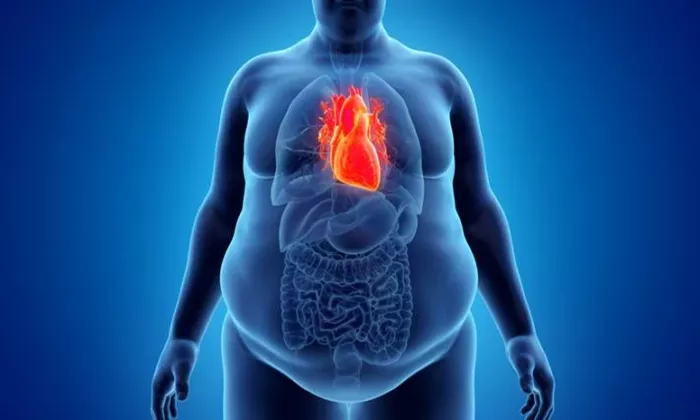New research has highlighted a troubling link between extreme weight fluctuations and increased mortality risks in obese individuals with cardiovascular disease. Both weight gain and weight loss were found to significantly elevate the risk of death in this group.
The study, published in the BMJ Journal Heart and conducted by Anglia Ruskin University (ARU), analyzed data from 8,297 participants in the UK Biobank study. All participants were obese and had existing cardiovascular disease. The research tracked their health over nearly 14 years, recording weight changes during the period.
Findings revealed that participants who gained more than 10 kg during the study had a threefold increase in cardiovascular-related death and nearly doubled the risk of all-cause mortality compared to those who maintained a stable weight. Similarly, weight loss of more than 10 kg was linked to a 54% higher risk of death from any cause, underscoring that both substantial weight gain and loss are harmful to health.
Factors such as a higher body mass index (BMI), smoking, and prior alcohol use were identified as contributing to a greater likelihood of significant weight gain. Notably, younger individuals also had a higher probability of experiencing substantial weight increases.
The prevalence of obesity in the U.K. has been on the rise, with the proportion of obese individuals growing from 15% in 1993 to 29% in 2022. Over two-thirds of those over 35 are now classified as overweight or obese, a condition that costs the NHS £6.5 billion annually. On a global scale, it is estimated that more than half of all adults will be overweight or obese by 2050.
The research was led by Professor Barbara Pierscionek, Dr. Rudolph Schutte, and Dr. Jufen Zhang from the Medical Technology Research Center at ARU.
“This is the first study to examine the connection between weight changes and all-cause mortality in obese individuals with cardiovascular disease,” said Dr. Zhang. “Our findings underscore the importance of maintaining a stable weight—regardless of being in the obese category—to reduce the risk of mortality. While significant weight gain was expected to worsen outcomes, it is concerning that extreme weight loss had a similar negative effect.”
The researchers urged caution regarding the increasing use of weight-loss drugs, which have become popular for rapid results. “While weight loss is generally recommended for obese adults, those with cardiovascular disease should only pursue such measures under the guidance of their healthcare provider,” Zhang added.
Related topic:
Poor Sleep Linked to Brain Health Issues in Older Adults, Study Finds
Hemorrhage and Hypertension Lead Causes of Maternal Deaths, WHO Reports
Ultra-Processed Foods Linked to Heart Disease Risk


